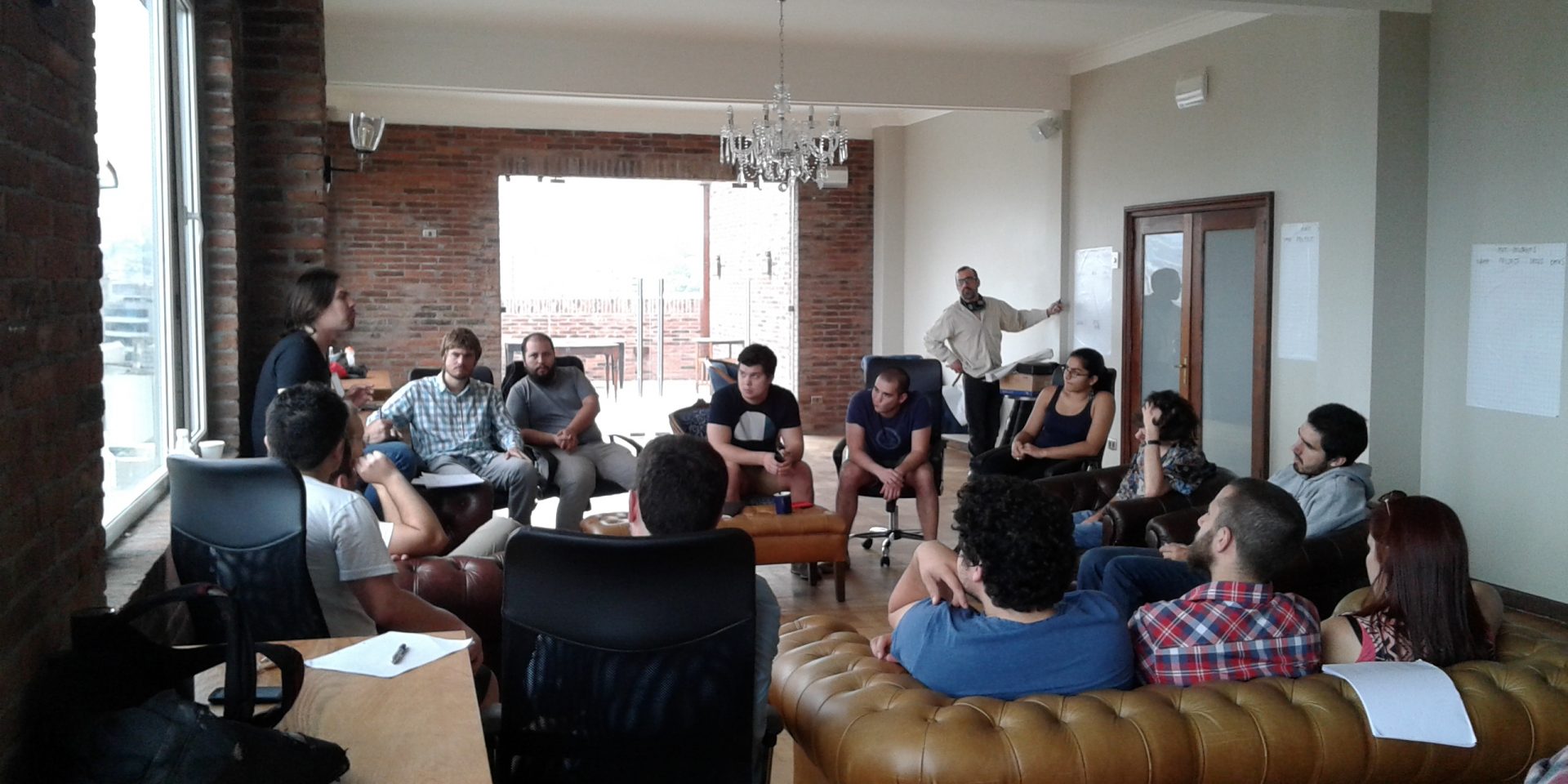

The Research Center in Social Complexity (CICS), at Universidad del Desarrollo’s Faculty of Government, organized a Season Finale event which featured lectures from TED fellows Isabel Behncke and Beau Lotto, and Katarzyna Nowak, PhD. in Biological Anthropology (Cambridge University).
CICS Professors, researchers, students from the Doctoral and Master programs, and friends gathered to celebrate the end of the academic year at the center. During the event, co-directors of the Center Carlos Rodríguez-Sickert and Ricardo Guzmán spoke on the center’s main achievements during the year, amongst which they mentioned the successful completion of the first year of their doctoral program in Social Complexity and the award of two major research grants: a “Proyecto Anillo” in Social Complexity grant (from the National Committee on Scientific Research and Technology –CONICYT), and a FONDEF Idea grant.
Isabel Behncke, PhD. candidate at Oxford University, spoke on “Sex, Play & Videos: the social lives of bonobos, our Great Ape cousins in the Congo jungle”, where she presented an analysis on the role of playing games in Bonobos. Behncke proposed that this behavior -which is observed in the most intelligent individuals of the group- generates innovation and creativity and increases intrinsic motivation, thus stimulating complex behavior.
Beu Lotto, PhD. in Neuroscience from the University of Edinburgh, presented “The emergence of visual illusions in evolving Artificial Life systems”. During his lecture, Lotto engaged attendants in perception games in order to show the utmost importance of context and its’ proper interpretation. In other words, he highlighted the inutility of information when it has been isolated from its context and all the complexities that carries.
The closing lecture for the event, titled “Measuring a primate’s perceived risk in a landscape of fear”, was delivered by Katarzyna Nowak, PhD. in Biological Anthropology from Cambridge University. In her lecture Nowak presented the results of her field work where she is evaluating risk perception in primates, in their natural environment.